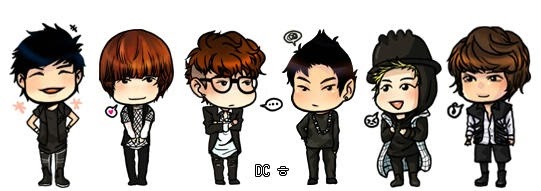
What is anime called in Korean?
hanguk aeniTo distinguish it from its Japanese counterpart, Korean animation is often called hanguk aeni (Korean: 한국 애니; lit. Korean animation) or guksan aeni (Korean: 국산 애니; lit. domestic animation).
Are there any anime in Korean?
Though not well-known in the USA, Korean anime, or aeni, has a lot to offer its viewers. Many of the best Korean anime are actually films, so if you're a movie buff looking to expand their knowledge of East Asian cinema, aeni is a great place to start.
How do you say otaku in Korean?
덕후 [deok-hu] (full word: 오덕후 [o-deok-hu]) is a Korean slang from the Japanese word Otaku (おたく) referring to someone who is obsessed with something.
Is demon slayer Korean?
SEOUL--Japanese animated film “Demon Slayer: Mugen Train” has topped 2 million viewers in South Korea by May 18, in a rebuke of political pressure for citizens to avoid Japanese culture due to soured bilateral ties.
Is anime popular in Korea?
Most of the anime fandom in Korea is a fan of said series. Other popular anime in Korea are Bleach, Dragonball, and Naruto. The interesting thing is that most anime fans in Korea are teenage boys, hence the popular titles. Korea also released some anime of their own, but it did not get as popular as Japanese anime.
What are crazy Korean fans called?
Sasaeng fanIn South Korean culture, a sasaeng, or sasaeng fan (Korean: 사생팬; Hanja: 私生팬), is an obsessive fan who stalks or engages in other behaviour constituting an invasion of the privacy of Korean idols, drama actors or other public figures.
How do you say kpop fan in Korean?
3:449:38Top 10 Korean Phrases For Kpop Fans - YouTubeYouTubeStart of suggested clipEnd of suggested clip바랄게요.More바랄게요.
What is the meaning of otaku in anime?
having an intense or obsessive interestDefinition of otaku : a person having an intense or obsessive interest especially in the fields of anime and manga —often used before another noun otaku culture.
What is a K-drama?
K-drama Phrase Overview. Certain phrases appear in dramas more often than in other formats. Also, certain slang words become popularized by their use in a drama and have since become a more common part of everyday Korean conversation.
What does the ending of the drama mean?
Often this is said in dramas when somebody is really annoying the speaker. The ending -을래 (요) (eullae (yo)) means ‘to want’ and is often used as a question ‘do you want?’
What does "museun" mean in drama?
무슨 (museun) is another form of 뭐 (mwo) and 무엇 (mueot) that means ‘what.’ The word 소리 (sori) means ‘saying’ or ‘mean’ and 이게 (ige) means ‘this.’
What does "jima" mean?
This phrase is used when the person you are talking to seems to be lying. It came from 뻥을 치다 (ppeongeul chida) which means ‘tell a lie. ’ 지마 (jima) is from the polite phrase 지 마세요 (ji maseyo) which usually denotes “do not.”
What does "hoksi" mean in Korean?
In Korean dramas, you’ll never hear this being said to someone older or someone holding a higher position than the speaker unless the person means to be rude. 2. 혹시 (hoksi) – By any chance. This word is used at the beginning of a statement or a question where a person is having doubts about a particular thing.
When do you say "hide your feelings"?
But this phrase can generally be used when you don’t want others to misunderstand or misinterpret you.

Popular Posts:
- 1. do people like beyblade anime
- 2. does danganronpa 3 have an anime
- 3. what apps to use to watch anime
- 4. when is chainsaw man anime coming out
- 5. don't toy with me miss nagatoro anime dub
- 6. how to draw anime on sketchbook
- 7. how to download anime for free on android
- 8. is persona 5 anime good
- 9. is the bleach anime over
- 10. do they know anime